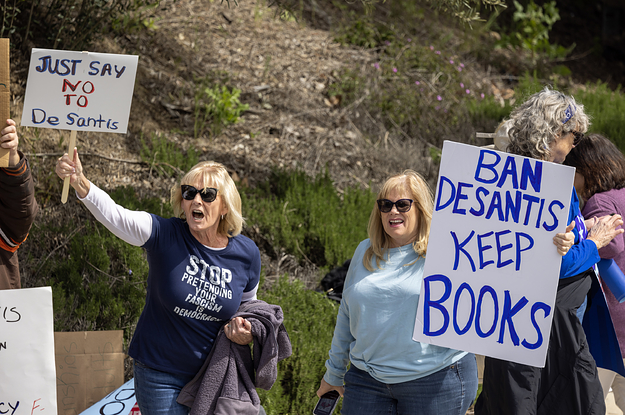Florida Governor Ron DeSantis is facing criticism for a proposed bill that would make it easier for public figures to sue media outlets for defamation. Critics argue that the bill would disproportionately benefit powerful individuals and discourage media scrutiny of public officials. The bill, known as HB 991, would require defendants who lose defamation cases to pay “reasonable costs and attorney fees” for plaintiffs, which some believe would encourage more lawsuits against the media. It would also undermine anti-SLAPP laws, which are designed to prevent retaliatory or frivolous lawsuits aimed at silencing critics.
Supporters of the bill argue that it would level the playing field for those who cannot afford to bring defamation claims. They point to cases like that of Nicholas Sandmann, the Covington Catholic high school student who settled lawsuits with CNN, the Washington Post, and NBCUniversal for their coverage of an encounter with a Native American protester. Sandmann’s lawsuit against other outlets was dismissed. Proponents of the bill argue that it would allow less powerful individuals to bring defamation claims without the burden of exorbitant legal fees.
Critics, however, contend that the bill would primarily benefit powerful public figures who are more likely to be the subject of media reporting. They argue that the bill fails to protect the “little guy” and instead serves to intimidate the press. Critics also note that the bill’s broad coverage of online posts and presentations would impact everyday citizens, including those who post on social media or speak at public meetings. They argue that the bill’s true beneficiaries are the rich and powerful, while the average person would be hurt by its provisions.
The bill’s opponents warn that it would have a chilling effect on media and public scrutiny of powerful figures by imposing financial burdens on those who make mistakes. The cost of insurance for media organizations to defend themselves in court would likely skyrocket, putting smaller groups at risk. Many outlets may choose to avoid certain stories altogether to avoid litigation risks. Critics argue that the bill would limit public discourse and affect people of all political affiliations, not just the media outlets typically targeted by conservative politicians.
The proposed bill is part of a larger trend in Florida to crack down on speech in various settings, including classrooms, universities, and protests. Governor DeSantis and his allies have been accused of attempting to silence teachers, Disney, and other groups. These efforts have inspired similar bills in other states. Given DeSantis’ reported presidential ambitions, critics argue that people across the United States should be paying attention to the assault on free speech in Florida, as it could serve as a model for the rest of the nation.









